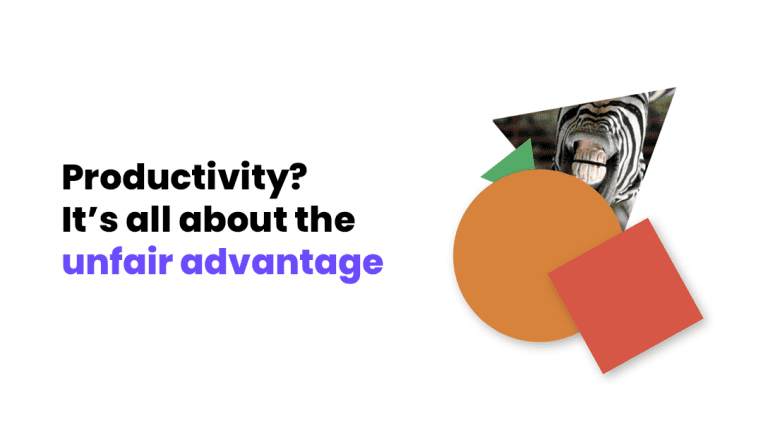Did you know that 70% of sales teams are either currently running or planning to run a sales competition?
Now, we know that not every day at the office can feel like a trip to Vegas. But there are ways you can bring the thrill of victory into your day to day routine.
Research shows that creating healthy competition within sales teams can substantially increase results. And contest ideas to motivate employees is a great way to do that.
You don’t need us to provide proof that salespeople are competitive! Here’s something to keep in mind though….Running effective sales contests is all about pushing the entire team to reach collective new heights, not elevating one individual over another. To do this, you must keep in mind that the three main goals of a sales contest are to:
- Elevate the performance of poor/average performers
- Increase overall team activity
- Enhance team morale
Notice that none of these goals have anything to do with driving more sales directly. In fact, “sell the most” sales contests usually have a negative effect on all three of the goals above.
Don’t build your sales competition around the top-selling sales rep

The biggest mistake you could make when planning a motivational sales competition is to reward the top-selling rep.
In fact, the worst sales games are created around the ideal that the “most revenue in a month wins X.”
Instead, put yourself in the shoes of a new sales rep or a team member that is struggling to sell on a consistent basis…
Imagine, it’s the first day of the month and you, the manager, are visibly excited to roll out the new workplace contest idea. As usual, the parameters are around selling more than everyone else to win. You think the prize, a new 4K TV, will motivate everyone to work hard and the competitive spirit between the reps will lead to a record sales month.
Wrong.
What’s more likely to happen is the top reps who always do well will pull ahead in the first week. The remaining reps, whose production you actually need to improve, will fall hopelessly behind when they realize they have no real chance of winning.
In the end, you gave an expensive prize to a rep that was going to have a great month anyway. Why even bother running a sales contest at all?
You should already have procedures in place to incentivize excellence. A “BDR of the Month” award or an “Account Executive of the Quarter” trophy for example. So, leave the acknowledgment of top sales results to those types of rewards.
Instead, reward front-end activity

Sales competitions should almost exclusively be designed around rewarding front-end activity.
Activity is the great equalizer. And this model rewards hard work, not talent, because anyone can work hard.
If you’re new or struggling, it’s much easier to stay in contention in a workplace competition when you’re judged on booking demos, making a lot of calls, or passing over qualified leads to account executives (or any other top-of-the-funnel activity).
A secondary benefit to structuring workplace games this way is that activity-based contests “shake the tree” of your top-performing reps.
Elite reps who are benefiting from strong pipelines and a mastery of your sales process may well forgo some of their more basic responsibilities. They’ve become so efficient they’ve forgotten what it means to hustle.
But unfortunately for them, if they want to be competitive in an activity-based sales contest, they’ll need to do the legwork just like everyone else.
Keep all your staff engaged and ask them to come up with fun contest ideas for work

You’ll want to ensure that everyone feels they have a chance to participate, all the way through. You’ll also want to encourage teamwork and mentoring.
Reward top performers for how well other members of their group do in these motivational workplace contests? It may encourage them to mentor more junior reps!
Or maybe offer tickets for a lottery. Better performers get more tickets, but everyone gets to play. And since no one finds out the winner until they end of the contest, everyone remains motivated to get stuck in.
With all that in mind, what does a good contest actually look like?
Here are some ideas
The most no’s
The premise here is simple. The rep who gets the most no’s in the month wins the game. This is a game where everyone can get stuck in, because it rewards rejection and it helps reps who get disheartened when something goes wrong. As a bonus, it might help get rid of some of those deals clogging up the funnel which were never going anywhere.
The Daily Prize
The great thing about daily competitions is they’re pretty random. Anyone can win the most dials in a day competition if they really put the work in. You can hold them in days and weeks when things are starting to flag to get a bit more motivation going.

Just buy some random presents, leave them in a pile, and whoever gets the most deals on a given day gets to open them. No one has any idea what’s in any of the boxes. It could be a great gift. It could be rubbish.
For extra competitiveness, allow reps to choose whether to keep the gift or steal yesterday’s prize from one of their teammates.
Leave early Fridays
This works best as a whole-team competition, and again, it’s a great motivator for the slow days when sales drop off. It’s simple. Hit a predetermined target across a team or the whole department, and you get to clock off early (and go for a drink!). With a bit of luck you’ll get your reps egging one another one to get over the line and achieve superhuman feats, all together, so they can be the first ones out of the door.
The most improved
This is one that’s targeted at the less successful sellers. It’s an incredibly simple idea. The reps who move up the most places in the league table, or outscore their PB by the largest amount, is the one who gets the win.
The Team Trophy
Put top performers with reps who are new, or who’ve found it a bit tricky. Hand out rewards not for overall performance, but for improved performance. Reps get points for their team mate’s improvement. But since the top reps can’t improve much, they’ll need their team mate to move up the league table in order to win.

With luck, your expert reps will share their expertise and skills with more junior staffers, and you’ll see the new people build new skills.
The Snooze Button
This isn’t a competition, exactly – more of a target. It works best for businesses where there are high-volume days. We know that a lot of people aim for quota each month. New York taxi drivers work more hours on sunny days, even though it’s easier to make money when it’s raining.
So, when there’s a high volume period, let staff bank some time off. If they hit certain targets during this period, then next time there’s a time you know will be quiet, they get a snooze button, and they can stroll into the office at 10.30am.
Sales Bingo / Scavenger Hunt
Another one to keep teams engaged for longer. Rather than simply rewarding the most sales, or the most dials, set a bunch of different targets your teams have to hit. This is particularly good if you’re keen to push reps out of their comfort zone and into new territories. You can say that they need to get a deal in California, or from a company over a certain size. And you can set a bunch of different targets so that everyone has to expand their range.

The Shakespeare
This is a competition designed to help the staff share best practice. It does encourage high performers, but in a way that benefits others, too. Staff submit their best emails, or their best tactics for closing, or anything which might encourage peer learning. The other staff vote on what they think is the most effectively personalized email, or the most persuasive pitch, or whatever metric you’re interested in. Whoever is voted highest gets to wear Shakespeare’s doublet, or gets the golden quill.
The fantasy football team
Fantasy football drafts your reps into teams, just like in fantasy football. Each of them gets different metrics, depending on their job role – just like yards, catches, interceptions. The teams should be structured to get as equal a weighting as possible, and then pair them head to head once a week. The winner gets a prize, sure, but really they get to beat their buddies. And because everyone on the team is depending on everyone else on the team, they all have to go really hard.

Let the games begin!
We hope this has inspired you to get started with your own sales competition. These ideas and suggestions are just the tip of the iceberg when it comes to sales competitions, so be creative, keep your entire team in mind, and focus on the little wins that will influence bigger wins down the line!




